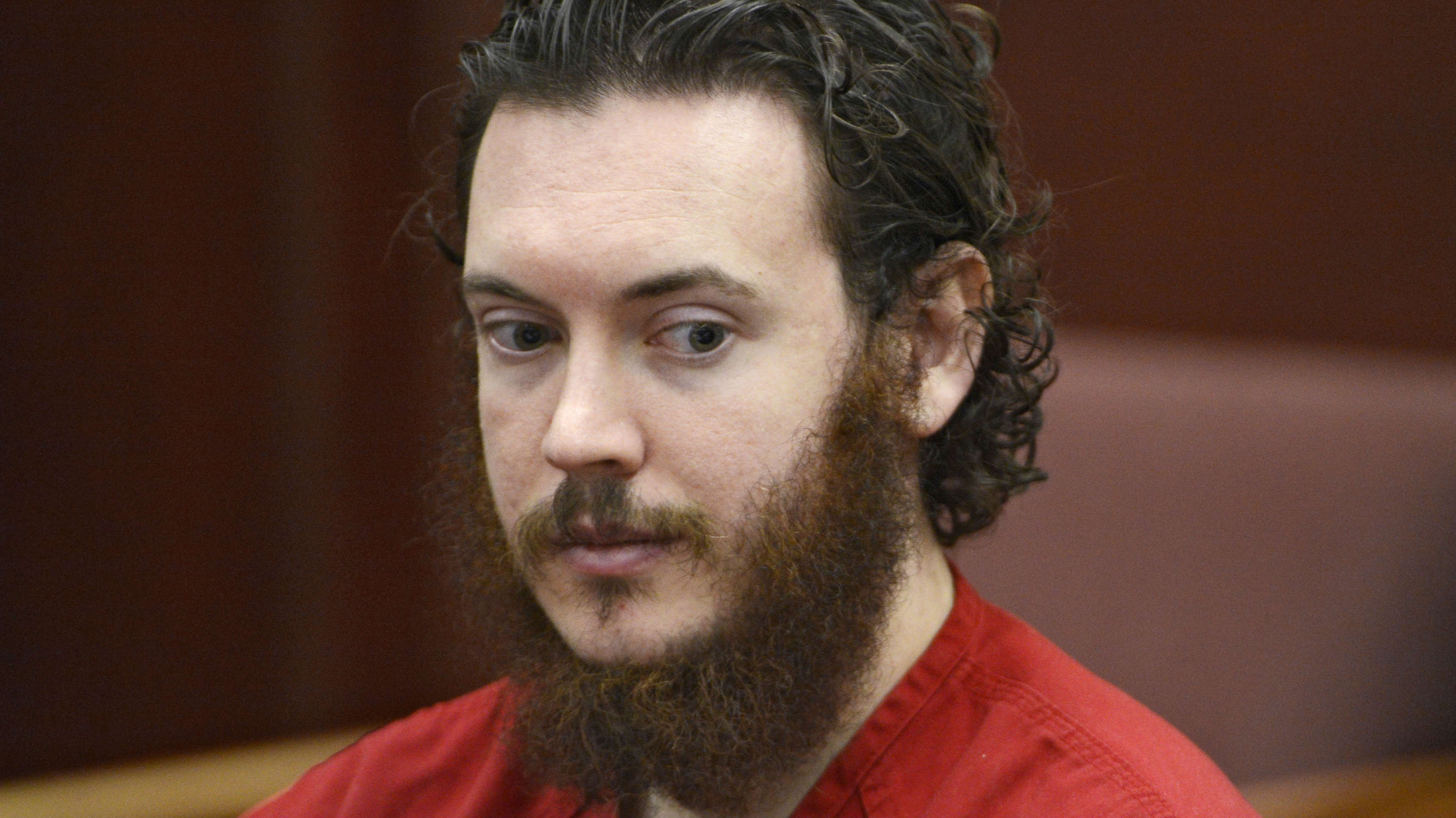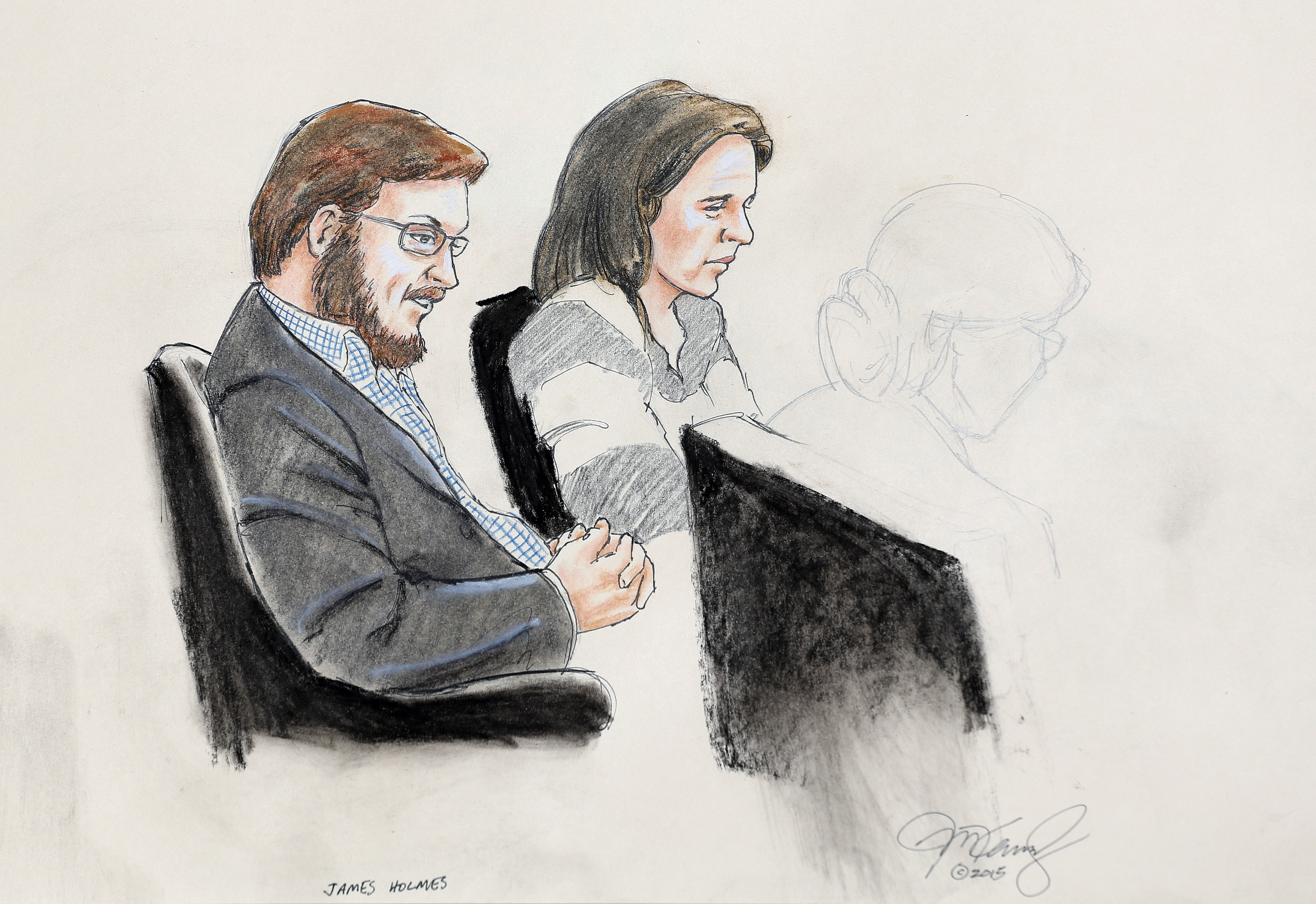

Nearly three years after the Aurora movie theater shooting, opening arguments in the trial of James Holmes have been scheduled for Monday. He has admitted to killing 12 people and injuring dozens more at a midnight screening in July 2012. But he has pleaded not guilty by reason of insanity.
CPR’s Ben Markus spoke with Colorado Matters host Ryan Warner to preview the trial, including what we know so far.
There’s been a gag order in place, so how much do we know about this case?
We don’t know much about what evidence either side has. The opening statements will be the first time we get a sketch of the case from each side.
Fox News reported nearly three years ago now that Holmes had a notebook where he drew images and wrote details of the shooting. We don’t really know much about it, though, because of the gag order.
Holmes' statements to police, if any, will come out in court. The results from multiple psychological exams will finally be revealed, as well.
The exams of his mental health were conducted for the court. We don't know the results. Isn't it unusual to have so much unknown going into a trial?
Yes, and this case is unusual in other ways, too. Jack Levin, a professor of criminology at Northeastern University, says that mass shooters tend to kill themselves, or they may be killed by the police, or they may beg for the death penalty. But he says none of those things seems to apply in the case of James Holmes.
Basically mass shooters don't tend to make it to a full trial for a number of reasons. And so he says this is a unique opportunity to get a full picture of a mass shooter.
We know that Holmes dropped out of CU’s neuroscience doctoral program. What else do we know about Holmes’ biography?
This doctoral program is highly selective and it’s rare for people to drop out, according to the former dean of the medical school.
Holmes is from San Diego and went to college in Riverside, California. He was seeking psychiatric help at CU. His therapist even reported him to campus police believing he was dangerous. But besides deactivating his campus access card, it's not clear what other follow up there was.
The jury selection process wrapped up last week. Who’s on the jury?
Nineteen women; 5 men. This includes jurors and alternates. They’re almost all white. Two have close connections to the Columbine shooting. One was actually a student there, and was friends with the shooters. Several of the jurors said they have experience with mental illness -- either personally, or a family member, or have worked with mentally ill people. One juror works at a school, and said some students there were in the movie theater Holmes shot up.
Jurors will hear a lot of testimony about Holmes' mental health, because he has pleaded not guilty by reason of insanity. This type of defense is rarely successful, but it could have other benefits for the defense team when it comes to sentencing.
I think every person I've talked to about this case thinks Holmes is mentally ill in some way. But was he insane, to the point where he couldn't distinguish right from wrong? That's a more difficult question. Even if the jury says he was sane, many legal experts believe that just by raising these issues of sanity throughout the trial, it may influence the jury enough to at least spare him the death penalty.









